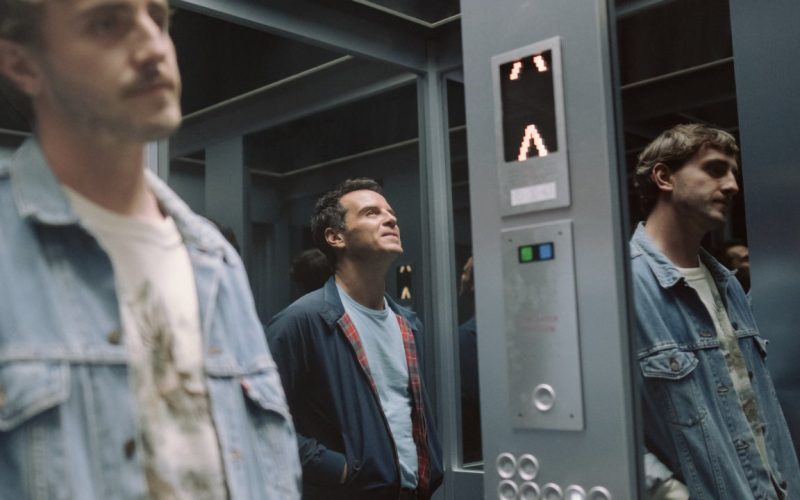All of Us Strangers: A Tender Film Spotlighting an Overlooked Struggle
All of Us Strangers, directed by Andrew Haigh, is a film that feels like the culmination of the director’s exploration of the idiosyncratic, lonely lives of certain gay men. Haigh, known for his breakout feature Weekend and the HBO series Looking, delves into the bittersweetness that comes with the progress made in LGBTQ+ rights and acceptance. The film shines a light on the struggle faced by a new generation of gay men who take for granted the advancements made in areas such as same-sex marriage and LGBTQ+ representation, while still dealing with the aftermath of the AIDS crisis and ongoing discrimination. Though All of Us Strangers may seem a bit polished for its raw subject matter, it deserves recognition for its portrayal of this overlooked struggle.
While All of Us Strangers takes inspiration from the 1987 Japanese novel Strangers by Taichi Yamada, it serves as a loose adaptation. To fully enjoy the film, it’s best to go in without knowing too much about the plot. However, here are the basics: Andrew Scott portrays Adam, a screenwriter in his 40s who is navigating through life. His friends have moved away from London with their partners and children, leaving Adam to spend his nights watching old TV and devouring biscuits. However, change comes in the form of Harry (Paul Mescal), Adam’s attractive neighbor, and a new writing project. As Adam delves into his own past for inspiration, the ghosts of his deceased parents (played by Jamie Bell and Claire Foy) manifest in his childhood home, leading him on a journey of self-reflection.
Throughout the film, as Adam grows closer to people – and spirits – he reflects on the societal influences that encouraged him to isolate himself. Caught between generations, Adam finds himself unable to fully identify with the term “queer,” but also not having experienced the full weight of the AIDS epidemic or Section 28. He recounts a life marked by subtle discrimination, shaped by the expectations of masculinity that alienated him from his peers and even his own father. Although these themes were present in Haigh’s previous work, such as Weekend, All of Us Strangers provides a clearer and more profound examination of these struggles. It highlights the lack of guidance and support for gay individuals navigating their growth, leaving Adam stuck in a state of arrested development while his friends move forward with their “real lives.” The encounters with his past only serve to emphasize his inertia.
It is important to note that All of Us Strangers is not just a sad film about the gay experience; it is a realistic portrayal. The film offers moments of joy, particularly in the budding relationship between Adam and Harry and the humorous performances by Jamie Bell and Claire Foy. Haigh’s signature visually stunning scenes capture the beauty of life, leaving no golden hour un-filmed. All of Us Strangers celebrates both the good and the bad, refraining from mere lamentation. Overall, it is a lovely depiction of the complexities of life.
However, the film’s overall pleasantness is somewhat disconcerting, considering the potential for a raw, melancholic portrayal of gay life in 2023. All of Us Strangers, Haigh’s first feature film with a mainstream awards push and major distribution through Disney’s Searchlight Pictures, plays it safe. Although Andrew Scott has shown his versatility in navigating between cynicism and romance (as demonstrated by his role as the Hot Priest in Fleabag), Adam, the protagonist of All of Us Strangers, lacks the expected level of bitterness. Even when he does exhibit a hint of it, the universe seems to deliver a harsh blow that, while it makes sense for the plot, feels unnecessarily cruel. Perhaps Haigh aimed to create a more pleasant gay film this time, but audiences looking for the same boldness and audacity found in Glen, the protagonist of Weekend, may find themselves disappointed.
The film’s inclination towards niceness becomes most apparent in its final scenes, where Adam’s story reaches a resolution that feels both too neat and no longer centered around Adam himself. While there is nothing inherently wrong with a gay film featuring a broader existential message, there is a sense of dissatisfaction. For the majority of its duration, All of Us Strangers generates empathy for a character who has isolated himself from the world, only to subject him to shocking horrors once he finally opens up. Sometimes, it is necessary to allow a gay protagonist to find solace within their own experiences.
